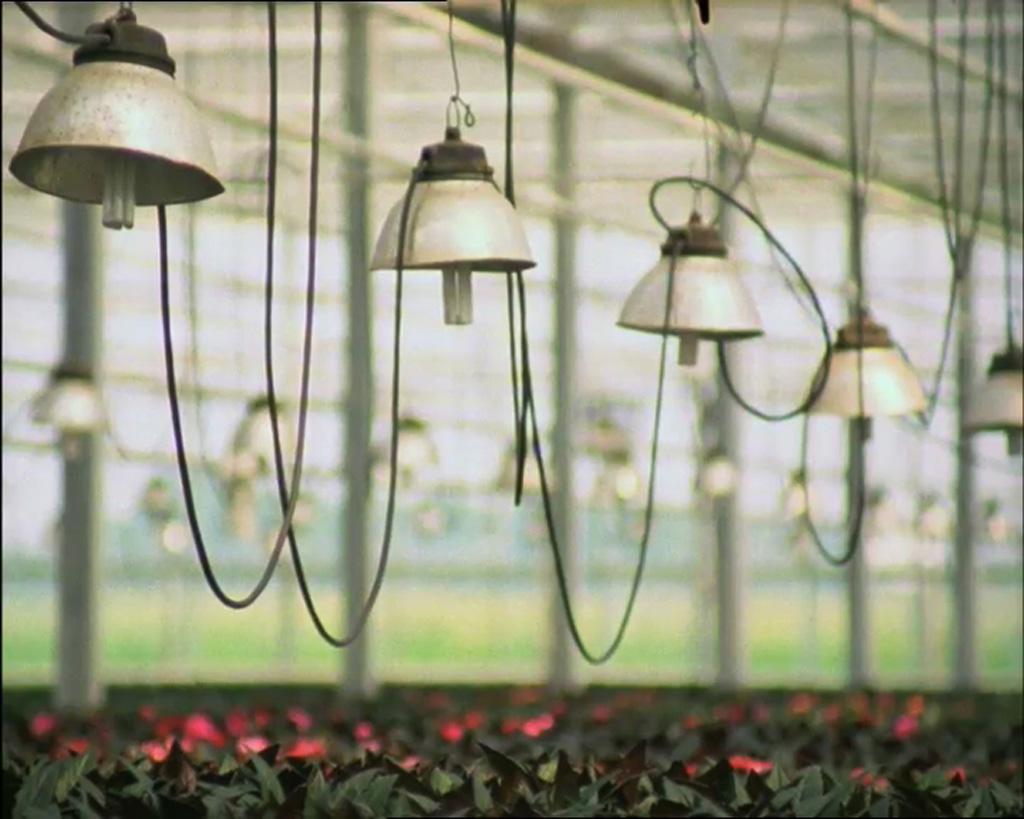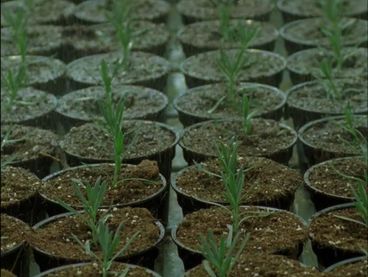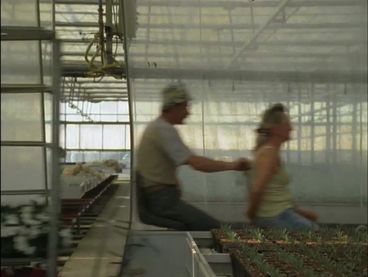MOOZ – audiovisual arts collection
Sunrise Dacapo (12 cm/standing)
2008, 5:20 min., 16 mm, 4:3, color
Direction, screenplay, camera, and editing: Nina Poppe
Camera assistant: Nina Mayrhofer
Sound: Elias Stabentheiner, Kai Loewenhaupt
Advisor: Prof. Dietrich Leder
Produktion: Kunsthochschule für Medien Köln
In long static shots, without commentary or music, Sunrise Dacapo shows how nature is created in assembly line fashion. The watchful gaze of geraniums growing in mass production and the balance of noise and silence shape the atmosphere of the film.
This short film by Nina Poppe was created at the KHM in Dietrich Leder’s seminar Documentary Miniatures. The film attracted attention at its premiere at the Short Film Festival in Oberhausen. Subsequently it was presented to an international audience as part of the Next Generation program of German films at the Cannes Film Festival. After its successful festival career the film was picked up for distribution in the program of PROGRESS Film-Verleih, and shown in cinemas Germany-wide as the short film opener of the long documentary film The Last Giants by Daniele Grieco.
Nina Poppe was born in 1979 in Münster. She lives and works in Cologne as a freelance photographer, curator, director, and cinematographer.
Nina Poppe studied photography at the University of the Arts, Utrecht (Netherlands), 2003. Later she studied at the Academy of Media Arts, Cologne. She earned her degree in February 2011 with the photobook Ama on Japanese women divers.
www.ninapoppe.com












